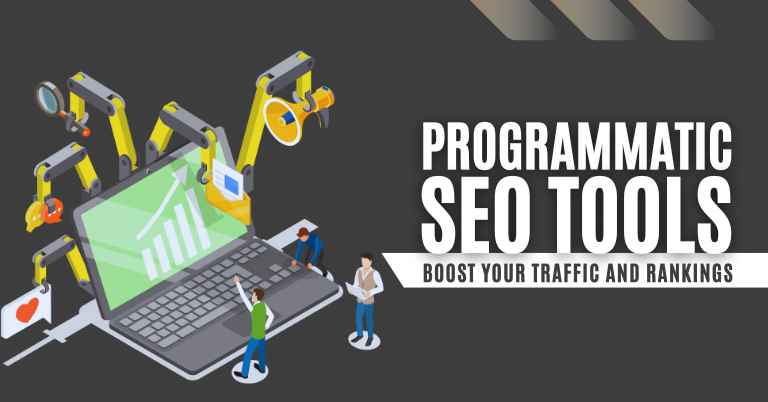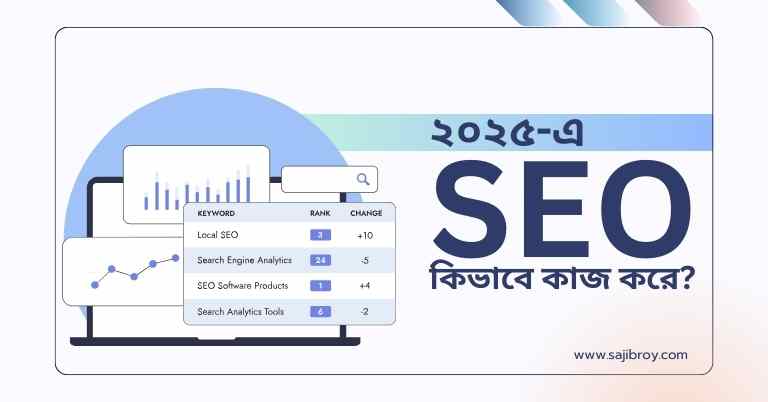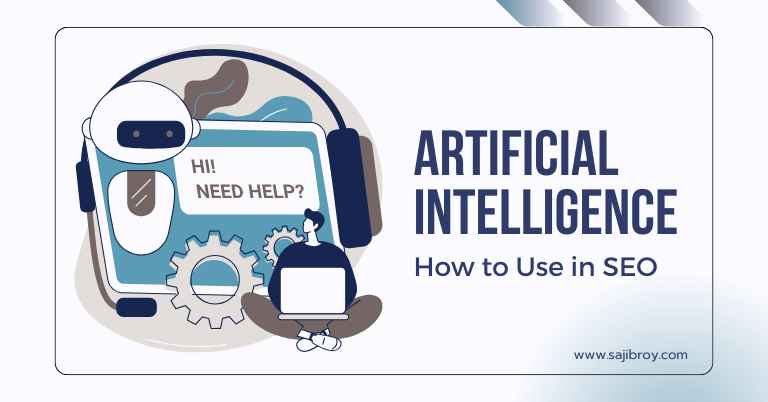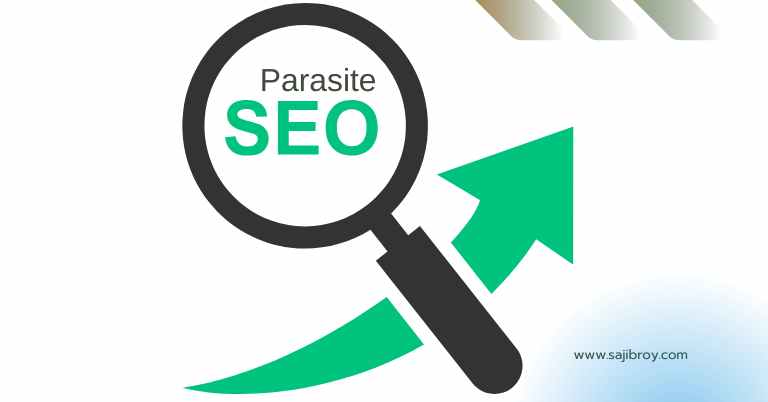Programmatic SEO tools are software or platforms that automate the process of creating SEO-optimized web pages using existing data and pre-programmed rules. These tools can help drive more traffic and increase revenue for websites by making relevant and easily accessible pages at scale.
Examples of programmatic SEO tools include Semrush for keyword research, Webflow for templated website pages, Airtable as a database to store programmatic page content, and Whalesync as a sync engine to connect data in the database to templated website pages.
Programmatic SEO is a strategy that can be beneficial for businesses looking to optimize their online presence and reach their target audience effectively. By using programmatic SEO tools, companies can save time and effort in creating and implementing SEO strategies.
Let's See the Topic Overview
How Programmatic SEO Works
Programmatic SEO is a revolutionary approach to search engine optimization that leverages advanced technology and automation to streamline and enhance website performance. Unlike traditional SEO methods that involve manual strategies and optimization, programmatic SEO utilizes programmatic tools to create and optimize web pages in bulk, resulting in improved rankings, increased organic traffic, and enhanced user experience.
Definition of Programmatic SEO
Programmatic SEO refers to the process of using programmatic tools and techniques to automate various aspects of the SEO process. It involves creating a large number of SEO-optimized web pages at once, using existing data and pre-programmed rules. This approach allows websites to efficiently target different keywords, locations, products, or services, ensuring relevant and targeted content is easily accessible to potential customers.
Benefits of Programmatic SEO
There are several benefits to implementing programmatic SEO as part of your overall SEO strategy:
- Increased Efficiency: Programmatic SEO allows for the creation of a large number of web pages simultaneously, saving time and effort compared to manual optimization.
- Enhanced Targeting: By utilizing existing data and implementing pre-programmed rules, programmatic SEO ensures that web pages are specifically tailored to target the right audience, resulting in higher conversion rates.
- Improved Scalability: Programmatic SEO tools enable seamless scaling of SEO efforts, allowing websites to expand their keyword targeting and reach a wider audience without compromising quality or relevancy.
- Dynamic Optimization: Programmatic SEO tools constantly analyze and optimize web pages based on performance data, ensuring maximum visibility and effectiveness in search engine rankings.
How Programmatic SEO Boosts Traffic and Rankings
Programmatic SEO significantly contributes to boosting website traffic and improving search engine rankings through various mechanisms:
- Keyword Targeting: Programmatic SEO enables websites to create and optimize numerous pages targeting specific keywords, allowing them to capture a wider range of search queries and attract relevant organic traffic.
- Location-based Optimization: With programmatic SEO, websites can easily create location-specific pages, capturing users searching for products or services in specific regions. This localization enhances visibility and improves rankings for location-based searches.
- Product/Service Centric Pages: Programmatic SEO tools allow for the creation of optimized pages dedicated to individual products or services. This focused approach ensures that each offering receives maximum visibility and attracts relevant traffic.
- Automated Content Generation: Programmatic SEO tools automate the creation and optimization of web content, ensuring consistency and relevancy across numerous pages. This saves time and resources while maintaining high-quality content.
In conclusion, programmatic SEO is a game-changer in the world of search engine optimization. By utilizing advanced programmatic tools and automation, websites can enhance their SEO efforts, drive more targeted traffic, and improve search engine rankings effectively and efficiently.
Key Programmatic SEO Tools
Introduction to programmatic SEO tools
Programmatic SEO is a powerful approach to boost your website’s visibility and drive more organic traffic. It allows you to create multiple SEO-optimized web pages simultaneously, using existing data and pre-programmed rules. By automating the process, you can save time and effort while achieving consistent and scalable results. In this blog post, we will explore some of the key programmatic SEO tools that can significantly enhance your SEO strategy.
Semrush – a powerful keyword research tool
Semrush is an indispensable tool for any programmatic SEO campaign. Its powerful keyword research feature provides insights into keyword search volumes, competition, and trends. With Semrush, you can discover high-performing keywords relevant to your business and optimize your content to rank higher in search engine results. By leveraging Semrush’s data-driven approach, you can make informed decisions and stay ahead of your competition.
Webflow – templated website pages
Webflow is a user-friendly content management system (CMS) that offers templated website pages. With its intuitive drag-and-drop interface, you can create visually appealing and responsive web pages without the need for coding skills. Webflow’s templates are optimized for SEO, ensuring your website meets the best practices for search engine visibility. By utilizing Webflow, you can save time and streamline the process of building SEO-friendly web pages.
Airtable – database to store programmatic page content
Airtable is a versatile and collaborative database tool that allows you to store and organize programmatic page content. With Airtable, you can create custom databases to store information such as page titles, meta descriptions, and content snippets for each web page. This centralization of data simplifies the management of programmatic SEO projects and enables seamless collaboration among team members.
Whalesync – sync engine to connect data to templated website pages, ensuring each H3 heading adheres to HTML syntax
Whalesync is a synchronization engine specifically designed for programmatic SEO. It connects your database content to your Webflow templates, ensuring that each H3 heading adheres to HTML syntax. This feature guarantees that your web pages maintain a consistent structure and meet the standards required for optimal SEO performance. By utilizing Whalesync, you can automate the process of syncing data to your templated website pages and eliminate the risk of HTML syntax errors.
Case Studies Of Successful Programmatic SEO Implementation
Tripadvisor – leveraging programmatic SEO for top search results
Tripadvisor is a renowned platform that caters to the travel community. One of the reasons behind its success in search engine rankings is its effective use of programmatic SEO. When users search for “top things to do in (city),” Tripadvisor consistently appears in the top search results. This is because Tripadvisor has implemented programmatic SEO techniques to optimize its web pages.
This implementation involves creating a large number of SEO-optimized pages using existing data and pre-programmed rules. By doing so, Tripadvisor ensures that its bottom-of-the-funnel pages are readily available to potential customers. This not only drives more traffic to the website but also increases revenue. Programmatic SEO has played a significant role in Tripadvisor’s success in dominating search engine results in the travel industry.
Yelp – using programmatic SEO to reach the target audience
Yelp is a popular platform that helps users find local businesses. In order to effectively reach its target audience, Yelp leverages programmatic SEO strategies. By implementing programmatic techniques, Yelp ensures that it ranks high in search results for various business searches.
For example, when users search for a specific type of business in a particular location, Yelp’s pages are often among the top search results. This is achieved by using existing data and pre-programmed rules to create numerous SEO-optimized pages.
Yelp’s successful implementation of programmatic SEO has allowed it to reach a wider audience and attract more users to its platform. By consistently appearing in top search results, Yelp has become a go-to resource for individuals seeking local business recommendations.
Other examples of programmatic SEO success stories
Aside from Tripadvisor and Yelp, there are several other notable success stories in the realm of programmatic SEO implementation. These examples demonstrate the potential impact of utilizing programmatic techniques in SEO strategies. Here are some additional examples:
- Airbnb: Through programmatic SEO, Airbnb has managed to attain top search rankings for various travel-related search queries, expanding its customer base globally.
- Booking.com: Implementing programmatic SEO has helped Booking.com secure high visibility in search engine results for hotel-related searches, contributing to its position as a leader in the online travel industry.
- Amazon: Programmatic SEO strategies have enabled Amazon to dominate search results for product-based searches, making it the go-to platform for online shopping.
These examples not only highlight the effectiveness of programmatic SEO but also emphasize its versatility across different industries. By utilizing programmatic techniques, businesses can significantly improve their online visibility and reach their target audience more effectively.
Conclusion
Programmatic SEO tools, such as Semrush, Webflow, Airtable, and Whalesync, have revolutionized the way websites optimize their pages for search engines. These tools allow businesses to create SEO-optimized web pages at scale, using existing data and pre-programmed rules. By leveraging programmatic SEO, companies can drive more traffic to their websites and increase revenue.
Programmatic SEO helps them create relevant and easily accessible pages for their target audience, ensuring that they appear in top search results. One of the main advantages of programmatic SEO is its ability to automate the process of publishing bulk pages, saving businesses time and resources.
However, it’s important to note that programmatic SEO is still SEO, and understanding the basics of SEO is crucial for a successful strategy. Overall, programmatic SEO tools have empowered businesses to optimize their web pages effectively and efficiently. By utilizing these tools and implementing a programmatic SEO strategy, businesses can reach their target audience, drive more traffic, and ultimately achieve their business goals.




![6-Month Local SEO Plan [Download Your Complete Proposal Template]](https://www.sajibroy.com/wp-content/uploads/2025/01/6-Month-Local-SEO-Plan-Download-Your-Complete-Proposal-Template.jpg)







